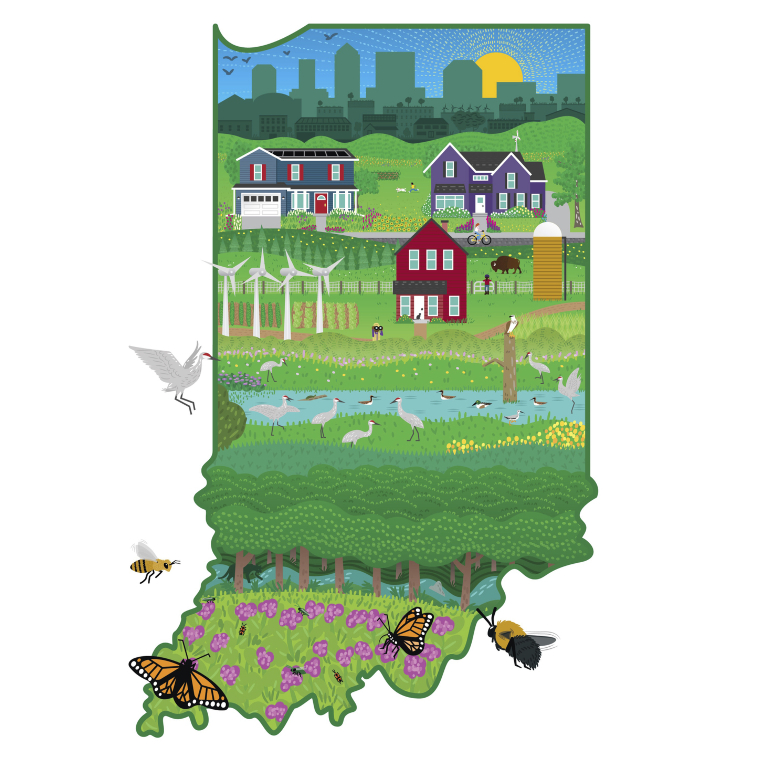In October, Indiana University’s Environmental Resilience Institute hosted academics, industry leaders, and government stakeholders during a virtual workshop aimed at identifying and prioritizing climate change-related challenges related to water resources.
Funded by the National Science Foundation, Water Equality: Resilience in Climate Change was a four-part workshop that sought to identify existing research gaps in water resources and strategies for greater water resilience. ERI staff and affiliates organized and led the event.
“Water is clearly important for pretty much all life on Earth, and it is a major driver of our economy,” said Ben Kravitz, assistant professor of earth and atmospheric sciences at Indiana University and a workshop organizer. “This workshop helped us identify what data we need to make decisions about water quality, how we might advise policymakers to act on that information, and what strategies might be effective for building resilience in this sector.”
The accelerator workshop featured flash talks from researchers and industry leaders and facilitated discussions related to a variety of water resource topics, including governance, agriculture, infrastructure, and water pricing. Environmental justice considerations were also frequently discussed and among several outcomes included in a final workshop report.
“Water is necessary for life, and it is also a basic human right,” Kravitz said. “Yet, we put a price on it, and we have laws around water rights. Who might be left out of these conversations?”
Increasing water literacy, or the understanding of water resource management in the US, was a key strategy explored during the workshop. The discussion outlined efforts to clearly communicate what experts measure when evaluating water quality, how the US Environmental Protection Agency sets water quality standards, and more.
“Informing the electorate about these issues can help us match governance structures to the needs of communities,” Kravitz said. “Given that water is changing, in some cases very rapidly under climate change, how can governance systems adapt to keep up with these changes?”
Future efforts to advance these conversations include recruiting additional stakeholders, such as farmers and landowners, to join the conversation. ERI will also continue to play a role in catalyzing the formation of interdisciplinary research teams to address these complex challenges.
“This workshop would not have happened without ERI,” Kravitz said. “The ability of ERI to tap into a community of diverse experts has been demonstrably successful.”
Access the "Climate Resilience and Water Resources" report
About the Environmental Resilience Institute
Indiana University’s Environmental Resilience Institute brings together a broad coalition of government, business, nonprofit, and community leaders to help Indiana and the Midwest better prepare for the challenges of environmental change. By integrating research, education, and community, ERI is working to create a more sustainable, equitable, and prosperous future. Learn more at eri.iu.edu.



